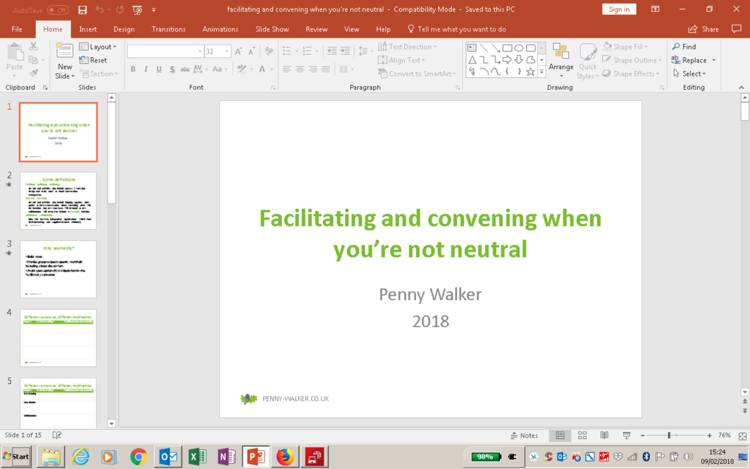Many organisations in the sustainability field do their best system-changing work when they are collaborating. They recognise this, and they seek out collaborators who, like them, want to make more change than one organisation can do working alone.
They understand the power of collaboration so well, that they put resources and staff time into facilitating and convening it.
And they find themselves in a challenging situation - playing the role of convening and facilitating, whilst also being a collaborator, with expertise and an opinion on what a good outcome would look like and how to get to it.
Why is it a problem?
When you have expertise and a point of view on the topic being discussed, and you're also the convenor or facilitator, it causes three kinds of problems:
You are insufficiently neutral (or are thought to be) when you are playing the 'honest broker' role, helping the rest of the group discover their consensus. The decisions made unravel, because they are not deeply owned by the group.
Your point of view and your expertise are lost to the group, unless someone else can contribute them on your (or your organisation's) behalf.
The people you have convened don't see themselves as collaborators, rolling their sleeves up to get on with real work after the conversation. They see themselves as consultees, telling you what your should do after the conversation.
These problems are not insurmountable, but they are real. Understanding that they are an inherent feature of being a non-neutral facilitator/convenor helps you to anticipate them, spot them when they occur and mitigate.
Thinking it through as a team
I work with a lot of organisations who are in this position, and recently I ran a half-day masterclass for one of them. The masterclass began with me setting out the problem, and then the group shared their actual experiences and discussed what they wanted to do about it.
Here are the slides, suitably anonymised.
Once you understand the typical challenges, you can decide which situations need that additional neutrality, which really need you to be 'in' the conversation, and come up with ways of making sure that happens. There are some ideas here.
I'd love to help other organisations think through these dilemmas and make their own choices about them.

